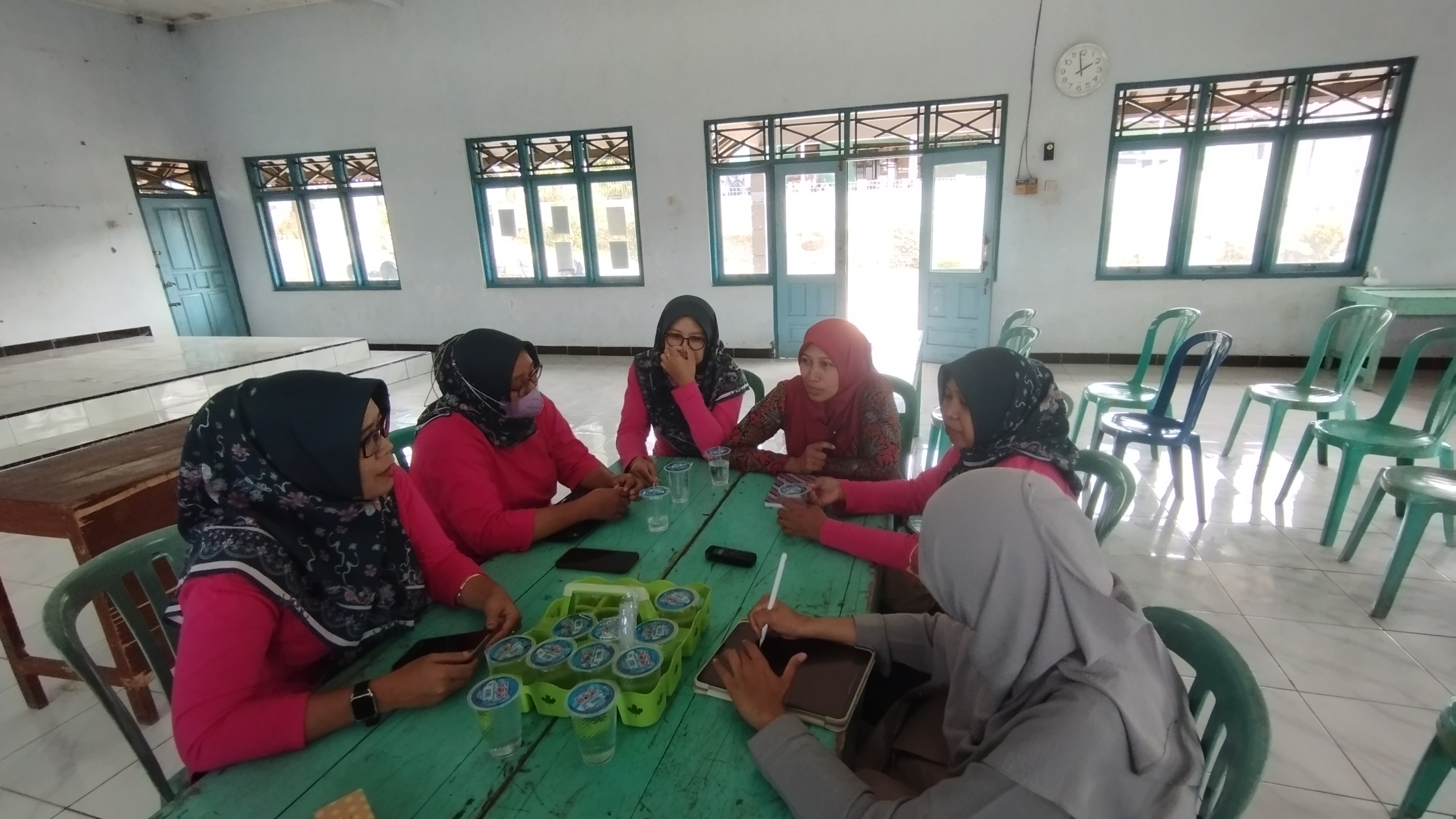Marwa has spent her fieldwork year examining how Indonesia’s integrated primary health care program is being implemented at the community level. Her research has brought her into close contact with the people, places, and policies shaping access to care in rural and semi-urban areas.
At one auxiliary community health center, Marwa observed an examination room intended to reflect the promise of the new model: more services, better equipment, and stronger referral pathways. While the room offered a degree of privacy and stability, it also highlighted a persistent gap (i.e., many facilities still lack essential tools, and not every clinic can deliver care to this standard). The reality on the ground remains uneven.
Marwa also spent time with community health workers (CHWs) during monthly posyandu activities and localized service days to provide care across the life cycle, from infants to older adults. In one interaction, CHWs carefully measured a toddler’s head circumference while juggling the needs of other patients. “They continue to serve with commitment and compassion,” Marwa shared, “even though their work is often undercompensated and underrecognized.” Their resolve, she noted, is a cornerstone of the system’s success.
Recognizing the influence of socioeconomic conditions on care-seeking behavior, Marwa also engaged with patients in their homes. Documenting and reflecting on these living conditions helped her see more clearly how income, housing, and geography shape an individual’s ability to access healthcare. “To truly understand the impact of a health policy,” she reflected, “we need to look beyond the clinic. People's lives don’t begin and end at the examination table.”
Finally, Marwa and her research team facilitated focus group discussions with CHWs to better understand the challenges and opportunities of delivering expanded services. In one village, the local madrasah (Islamic school) lent its space for health activities—a practical solution that underscored the importance of local partnerships in sustaining health reform.
Through her fieldwork, Marwa has seen firsthand how a national policy comes to life in local contexts. Her experiences highlight the potential of integrated care and the work still required to ensure it reaches every community equitably. Her project continues to ask critical questions about infrastructure, workforce support, and the social determinants that shape health, reminding us that real transformation happens not just through policy, but through people.
